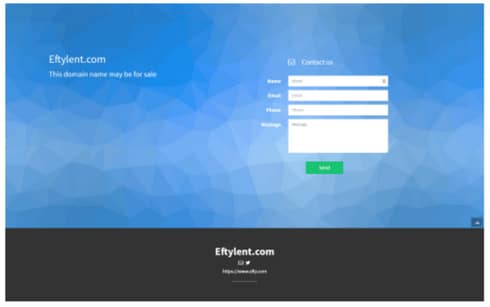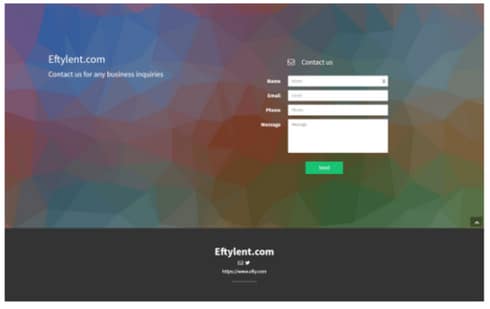New options make it harder for potential complainants to show you were trying to sell a domain name.
Domain name selling platform Efty has launched new landing page designs that the company says will help prevent UDRP and INDRP (India) losses.
While not the only requirement for finding cybersquatting under UDRP, complainants often try to show that the domain name owner registered the domain name with an eye toward selling it to the alleged trademark holder.
Instead of saying that the domain name is for sale, the Efty landers say it may be for sale.

I’m not sure how much deference UDRP panelists give to the terms may and is; it probably has a lot to do with how you respond.
The INDRP landers don’t even say the domain is for sale. They only have a contact form for “business inquiries.” (INDRP is really a joke of an arbitration process.)

The content of your landing page is only part of what matters in a UDRP. And it’s worth pointing out that sometimes adding relevant pay-per-click ads to your landing page can even help you in a UDRP because they can show you used the domain name for a legitimate purpose.
Still, I think these are nice options to have at your disposal for domain names that might be targeted.






Another in a long line of “foolproof plans.”
Look, if you register something like BudweiserBeer.com, it is not going to make a fig’s worth of difference whether it points to a lander saying it “may be for sale” or whether you point it to a lander saying “I’m a dimwit” – the UDRP result is going to be the same either way.
Yes, but as to INDRP disputes, you can register whatever .in domain name you like, and if an owner of shittiest TM registered somewhere in Zimbabwe wants it, he will get it, if the lander has any PPC ads or “for sale” banner. In fact, in 99% of disputes INDRP complainants will steal respondents’ domains anyway unless there are developed websites running on them, but Efty landers now give 1% in favor of respondents lol. So true, INDRP process is such a joke to say the least.
Having participated in several .in disputes, I agree with your assessment. Decided by only the finest kangaroos imported fresh from Australia.
I would think that the majority of people who would use a “solution” like this are just the type that will get tripped up at some other part of the process regardless of what appeared on the landing page.
Generally the best landing page is nothing other than an email address. Anyone willing to pay money will send you an email if they are interested and it appears that the cliche “this isn’t being used” is somehow apparent. The landing page doesn’t even have to reference the domain name or say anything more than “email address: John Smith [email protected]“